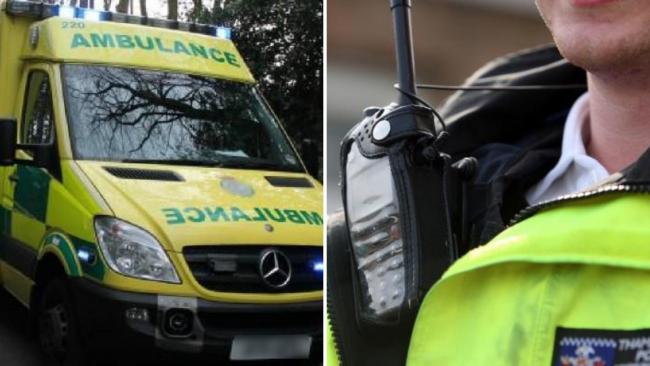Emergency services in the region are at breaking point with both police and the ambulance issuing desperate pleas in the last 24 hours for people to think twice about calling 999 and expect delays to non-emergency calls.
As the temperatures have increased so has the volume of emergency calls – with South West Ambulance Service saying it averaged one incident every 26 seconds for the entirety of last week.
It's after it responded to 23,088 incidents during the seven days up until Sunday.
The Trust is now urging people to use its service sensible, after experiencing its busiest week on record for the second time so far this month.
Sunday was the new busiest day recorded in Trust history with 3,522 incidents, and Saturday was the third busiest with 3,443 incidents, topped only by New Year’s Day in 2018 in second place.
Sunday’s figure corresponded to 147 incidents every hour, and more than two incidents per minute.
Last week’s total figure exceeded the previous record of 22,050 incidents during the seven days to July 4. Incident numbers were 30% higher than those recorded on the equivalent week two years ago.
It's as Devon and Cornwall Police was forced to put out a warning yesterday evening to say it was seeing "exceptional demand" to its non-emergency 101 service, and to expect delays, although it stressed the answering of 999 calls was not affected.
The force said: "We are currently experiencing exceptional demand which means there is a significant wait for your call to be answered via 101.
"Please head to www.devon-cornwall.police.uk/contact/ to contact us for non-urgent matters and for further information. The answering of 999/emergency calls is not affected."
Ahead of what is expected to be a very busy school summer holiday period in the region, the South West Ambulance Service Foundation Trust has warned it must continue to prioritise speaking to and treating the most seriously injured and unwell patients.
To allow it to prioritise patients effectively, the Trust is now asking everyone who uses its service to do so sensibly. People should only to call 999 in a genuine, life-threatening emergency, for example:
• Chest pain / breathing difficulties / heart attack
• Stroke
• Severe bleeding
• Severe allergic reactions
• Severe burns or scalds
• Serious head injuries
• Major trauma such as a road traffic accident or a fall from height
People should not ring back to ask for an estimated arrival time, and should only call back if the patient’s condition worsens or they no longer need an ambulance.
Ceri Smart, SWASFT assistant director of operations - resource management, said: “Our service is continuing to experience an unprecedented high level of demand, and we have just had two of our three busiest days in our history.
“We are calling on the public to support us in protecting the NHS, so we can continue to save lives. Please help us, to help you, by only calling 999 in a genuine life-threatening emergency, and do not call back for an estimated arrival time. For other medical concerns, do contact NHS 111 for advice and support.
“Our people are working incredibly hard, 24/7, to ensure we are there for the people across the South West who need us most.”
The Trust is also encouraging people to look after themselves and others during this period of very warm and dry weather. They are advised to drink plenty of water, limit their exposure to direct sunlight, and check on those who are vulnerable.
People going out on day trips or visiting the region are asked to bring their regular medication, as well as essentials such as sunscreen, antiseptic remedies and paracetamol.




Recent comments
14 weeks 2 days ago
49 weeks 6 days ago
51 weeks 4 days ago
51 weeks 4 days ago
1 year 9 weeks ago
1 year 21 weeks ago
1 year 46 weeks ago
2 years 4 weeks ago
2 years 16 weeks ago
3 years 41 weeks ago